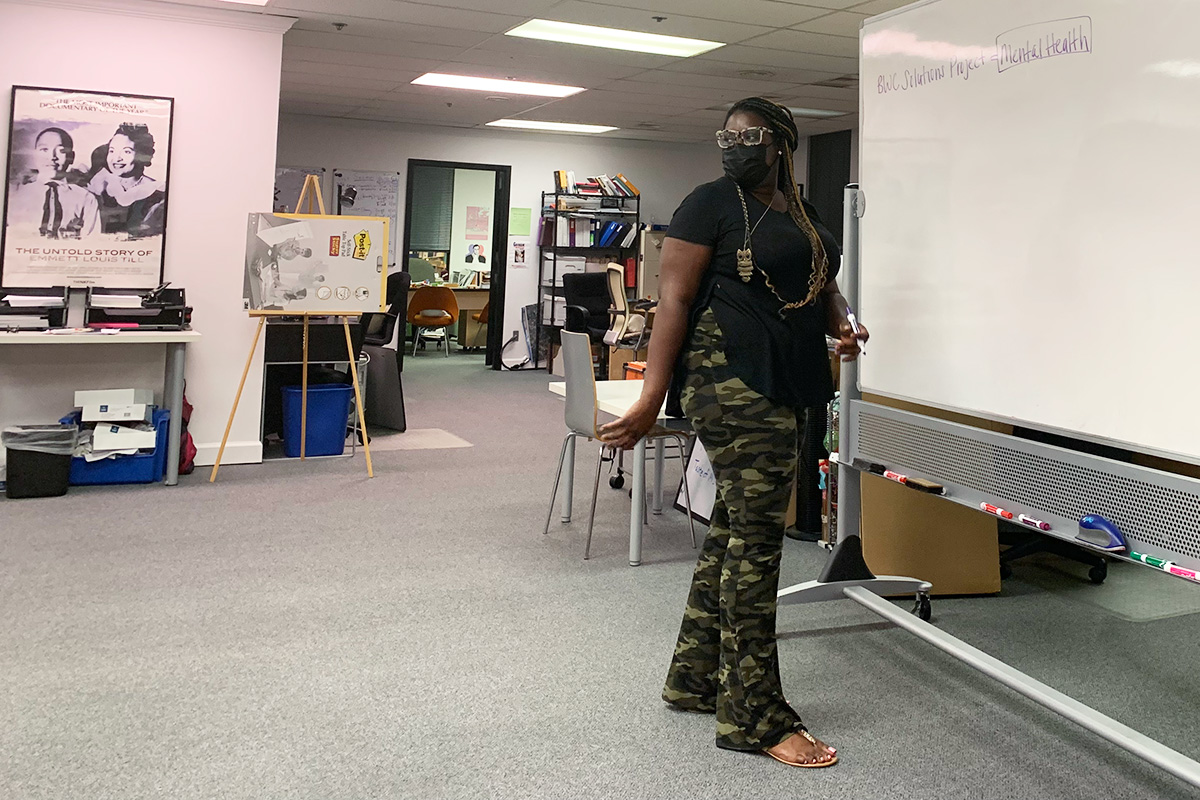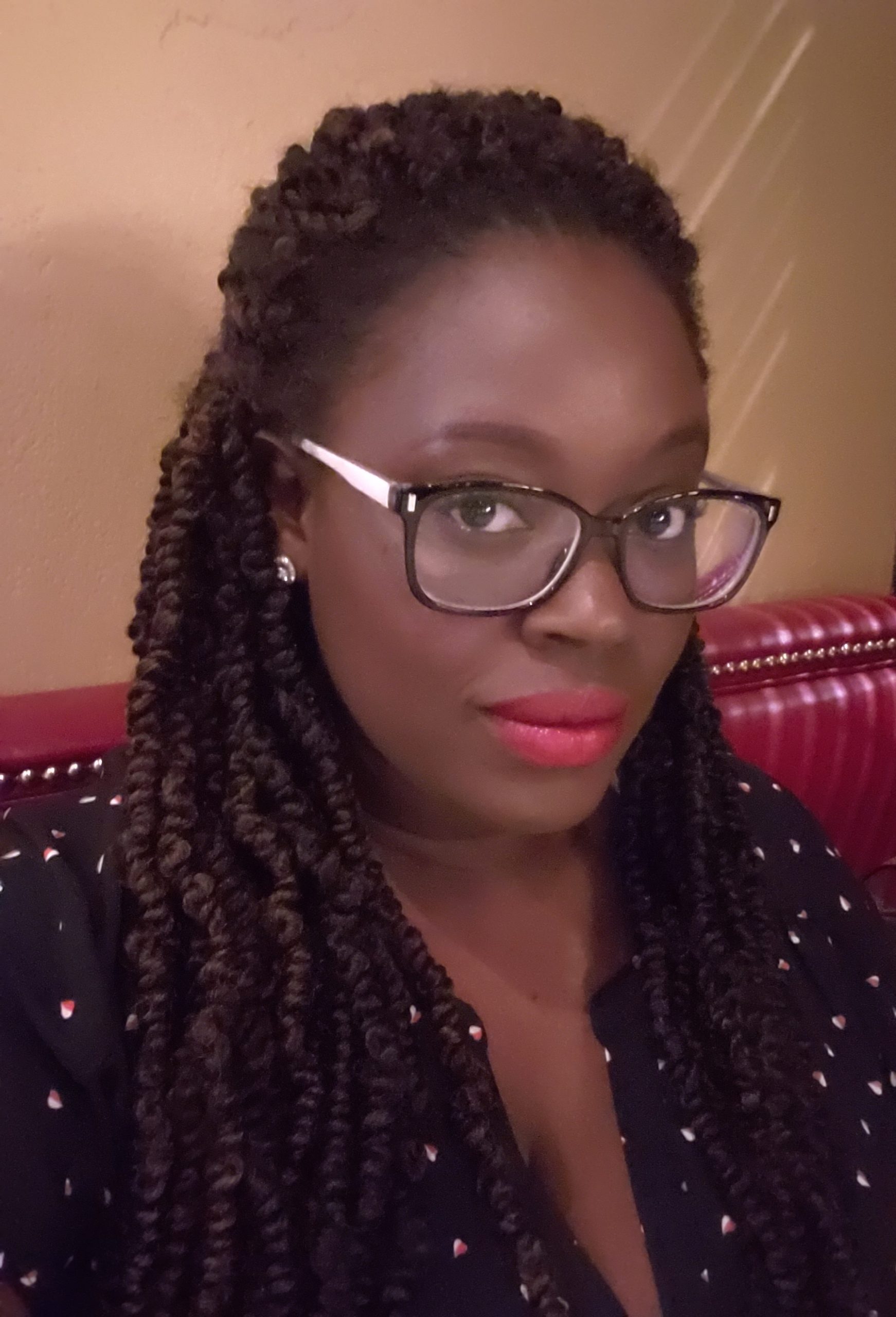To be honest, writing to you is challenging for me.
It’s challenging because I refuse to take lightly the impact your support has on my everyday life, my livelihood. Every single dollar you are generous enough to give to the nonprofit Mississippi Free Press puts gas in my car to make sure I make it to every interview; pays my rent and utility bills, including my phone bill and car insurance; refills my Wonder Woman mug with potent coffee just how I like it: strong, creamy and sweet; allows me to grocery shop for myself and my furbaby Khloe; supplies the countless legal pads and my favorite ballpoint pins that don’t smear since I’m left-handed.
Your unyielding generosity literally supports my dreams of polishing my natural writing talent while cultivating room for me to grow as an editor. Because of you, I can continue to hone my craft while simultaneously curating other brillant underdogs like myself to pursue their passions in journalism. These young professionals are entering a world of opportunity they had no idea existed, just like me.
Many Black, native Mississippi writers just like me only need to see that it’s possible. Your support, your readership, you holding us accountable all shows us that it is possible.
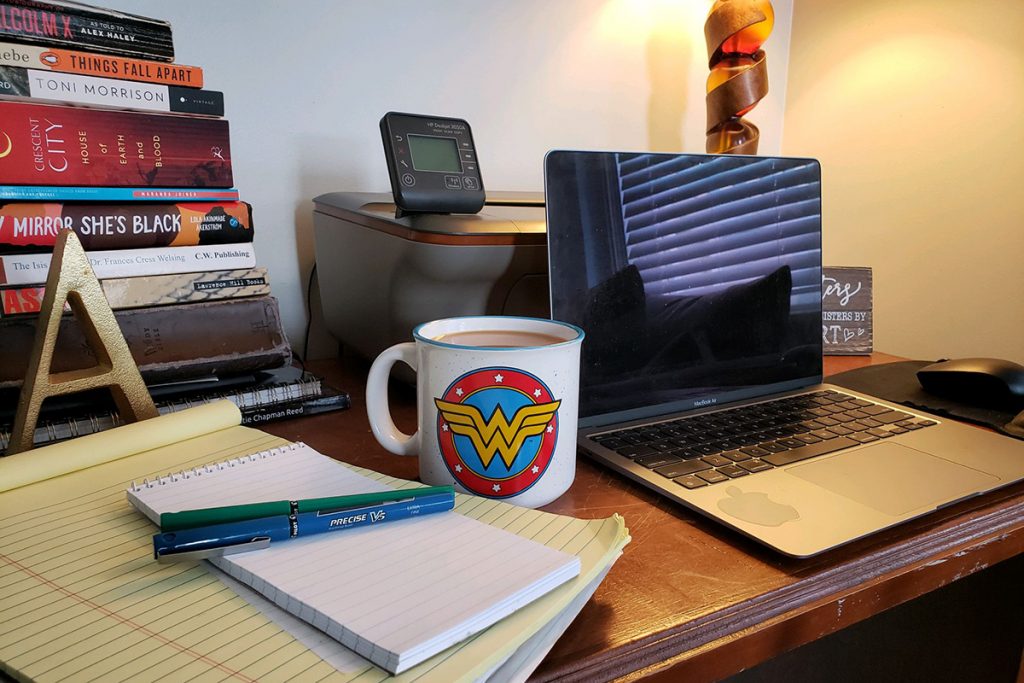
I remember when I first saw the ad for an editorial assistant with the Jackson Free Press on Facebook back in 2019. I had recently graduated from Mississippi College in Clinton with a master’s degree in biological sciences, just finished up a MCAT prep course at UMMC, and was working several odd jobs just to stay afloat. I was excited, fearless, incorruptible. Even though I was proud of myself for not giving up on my dream of becoming a medical doctor, I was so tired of having so many doors closed in my face.
It’s always been my fear and frustration that I’m just a jack-of-all-trades and a master of nothing. Despite my life and academic experience, I was just another Black woman millennial from Mississippi, kicking and screaming into a void, “Someone please just give me a chance.” I tried everything, using every degree and skill to apply for any job I qualified for: all state jobs working in any forensic lab in the nation, adjunct professor, administrative work for mentors, cleaning houses and offices, tutoring, writing papers for college students. I was also a full-time direct-care provider.
I emailed Donna Ladd—then the JFP editor-in-chief who later co-founded the Mississippi Free Press—and frankly let her know that while I have an extensive science background and never worked in journalism a day in my life, I was a natural artist and writer who found herself in a creatively starved place. I asked her if she would consider just allowing me to come sit under her and be in the office, just so I could be inspired and feed that hungry side of me again, because I just knew that I wasn’t the best person for the job she’d advertised.
But Donna saw something different. She took a chance on me, then bringing me to the MFP to help launch it, then promoting me to deputy editor. Donna opened a door for me that opened more doors, and then she positioned me to open those same doors for other non-traditional, passionate, bad-ass Black writers and artists just like me.
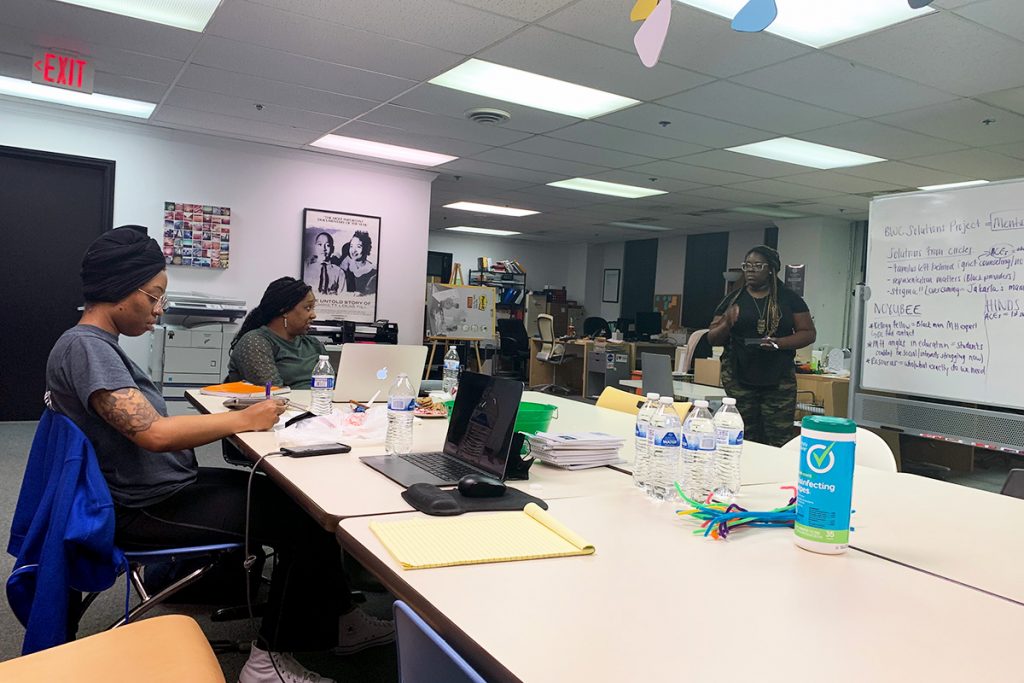
Now, because of you, and your passion for the progression of our Magnolia State, I’ve been properly trained and positioned to run confidently with the torch burning to hold the state’s predominantly white and powerful leadership accountable for the condition of my home.
Because of you, Mississippians don’t have to relegate our stories to national media reporters who parachute in on our state or the hoods my family grew up in just to write sensational stories with misleading headlines about communities they have no relationship with, only to put on a show for the money and clout that comes with clicks and views. You allow us to hire more staff who actually have a heart for Mississippi, and enable the communities we report on to tell the stories how they want it told without slant.
With your support, MFP can continue to mend the broken relationship between the people and media with our transparency and investigative journalism that focuses on truth and solutions. You are the reason we can continue to set an ethical standard in journalism as an example for those newsrooms that wrongfully charge their own audience to publish op-eds and stories that amplify the needs of the people. Your donations fund editors like Donna, Nate and me—who are only interested in backing journalists who want to tell the real stories of Mississippians, not to sell personal or corporate agendas or look down on our state. You fund projects like “Black Women, Systemic Barriers and COVID-19.” (Watch for my stories on Holmes County soon.) You fund outstanding reporters.
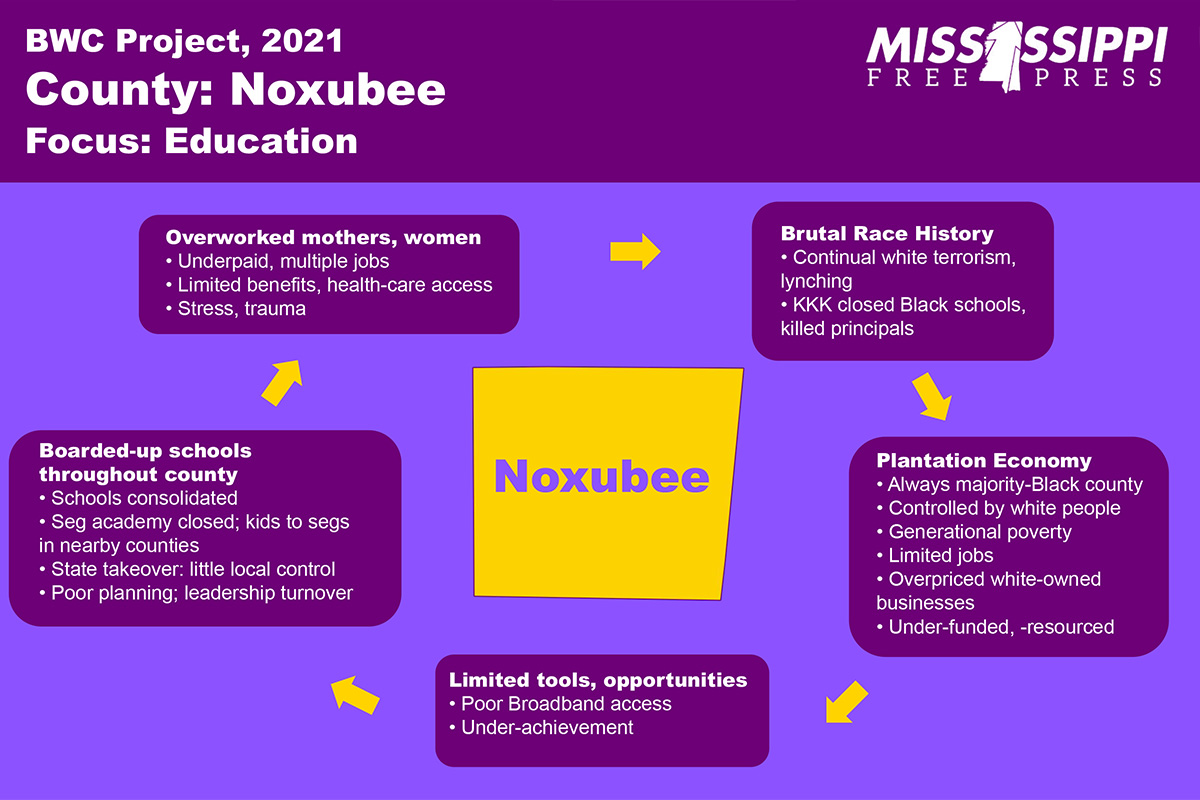
So no, I do not take your support lightly. Your time, your money, your resources are invaluable to us—you’re not just monetarily supporting a brand or another news publication, you’re funding a movement to bring more effective journalism to Mississippi for all our people. You’re funding proper representation for the lot of us who are talented, honest, and compassionate and dream of not just making a difference, but being the change Mississippi needs.
Please give whatever you can before midnight tonight and the new year rings in. Every penny counts and know that whatever you give keeps us excited, fearless, confident and incorruptible. I know that all of us at MFP are here because of you, so I only want to do this work if I can continue to stand and build a better Mississippi with you.

